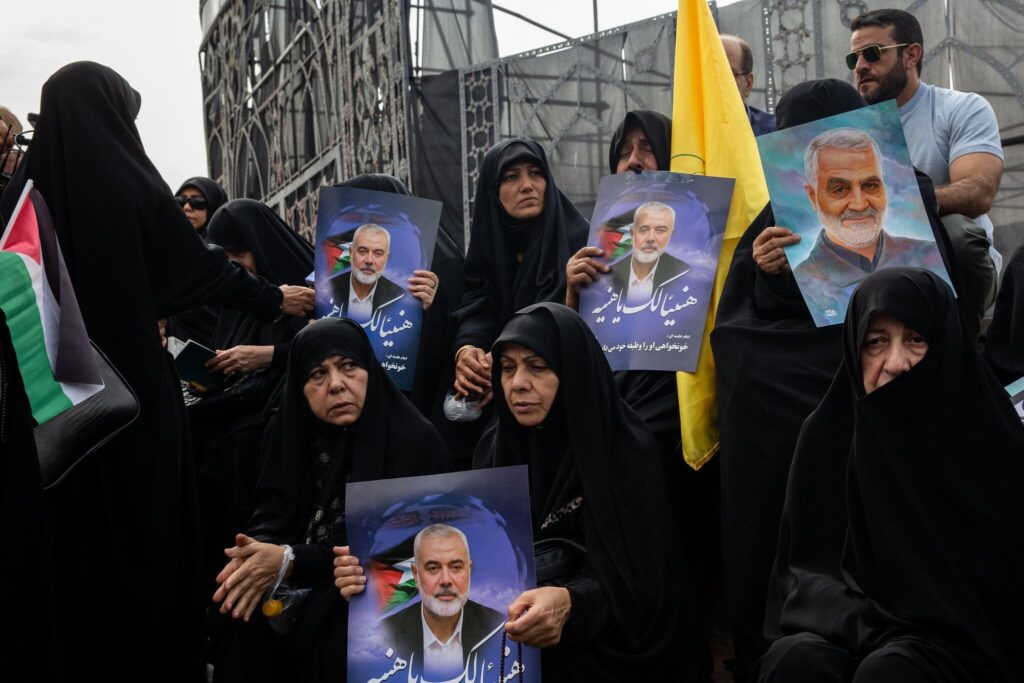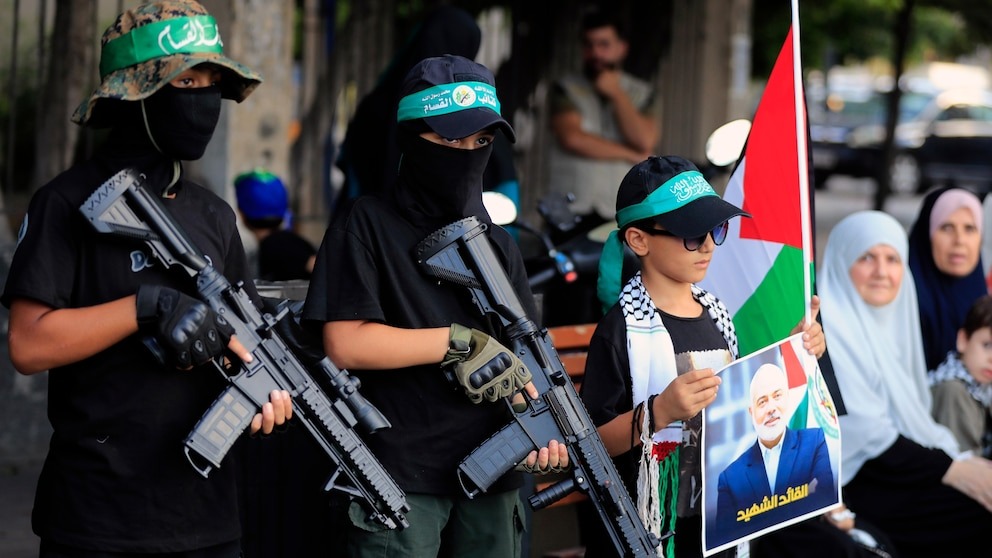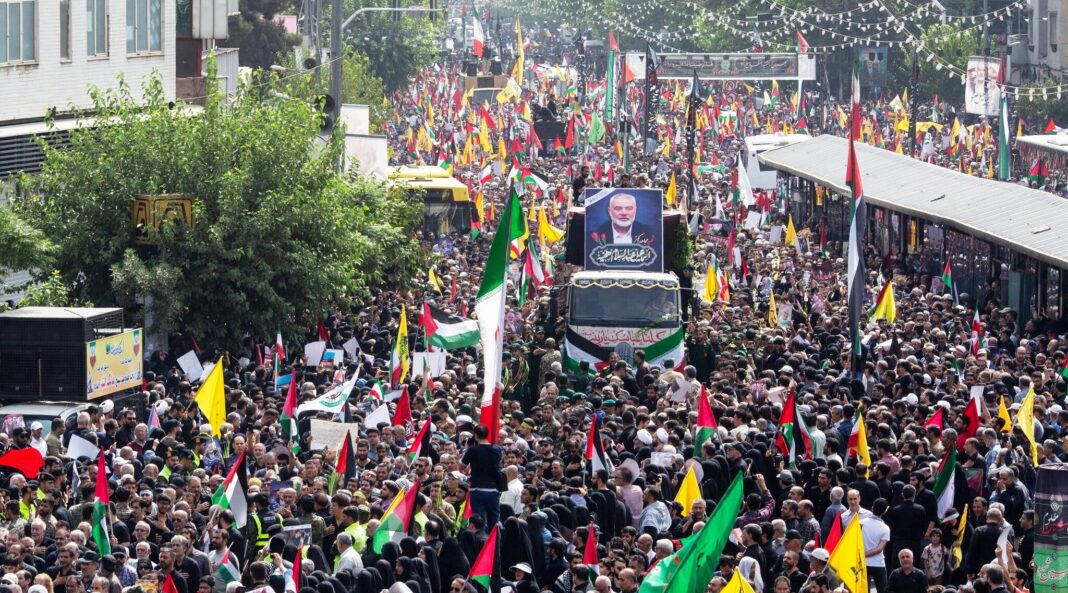In Tehran, the political leader of Hamas, Ismail Haniyeh, who was killed, was buried. He was mourned in many Muslim countries, including Lebanon and Turkey. The war in the Gaza Strip has been ongoing for 300 days, and there is a possibility that this war could enter a new, even hotter phase. The reason is apparent: the assassination of Haniyeh. Both sides are ready for escalation.
By Friday evening, it was announced that the US had deployed an aircraft carrier and a squadron of destroyer-bombers to the Mediterranean Sea for “the protection of the American contingent and Israel.” It happened after US President Joe Biden expressed deep concern over the prospect of escalating violence in the region. Simultaneously, the US embassy and the embassies of the UK and France urged their citizens to leave Lebanon as quickly as possible. Many airlines have already suspended flights.
All this points to the prospect of deepening war. Israel, too, added fuel to the fire: on Saturday, in the city of Tulkarm, they killed the local Hamas leader, Haitham Balidi, and a leader of Hezbollah’s southern front, Ali Abd Ali. A significant war seems inevitable.

Right Path or Cowardly Act?
As is known, the head of the political bureau of the radical Palestinian movement Hamas, Ismail Haniyeh, was killed in Tehran, where he had arrived to participate in the inauguration ceremony of Iran’s new president, Masoud Pezeshkian. Pezeshkian said that Iran “will defend its territorial integrity, dignity, and pride” and will make the murderers of Haniyeh “regret their cowardly act.” His words were spread by the Iranian agency Tasnim.
Iran’s Supreme Leader Ali Khamenei also called for revenge, considering it his country’s duty. “With this action, the criminal and terrorist Zionist regime has paved its way towards severe punishment, and we consider it our duty to avenge Haniyeh’s blood since he was martyred on the territory of the Islamic Republic of Iran,” he said.
The New York Times explains that Haniyeh’s assassination could prolong the ceasefire agreement in Gaza and the release of hostages, as well as provoke retaliation from groups supported by Iran in the region.
The Qatari Ministry of Foreign Affairs “confirms that this assassination and Israel’s reckless behavior will plunge the region into chaos and undermine chances for peace,” reports Al Jazeera.
The Turkish Ministry of Foreign Affairs issued a statement saying that Haniyeh’s assassination “once again confirms that Benjamin Netanyahu’s government does not intend to strive for peace.”
Hezbollah stated that Haniyeh’s assassination would inspire courage and determination among fighters and further intensify their actions against Israel.
Israel’s Minister of Cultural Heritage, Amichai Eliyahu, was the first high-ranking official to respond to Haniyeh’s assassination. According to him, it was “the right way to cleanse the world of this filth,” writes The Times of Israel.
Iran’s Dilemma
The place of the assassination of the political leader of Hamas, Tehran, adds a geopolitical dimension to this event.
On Iranian territory, at the president’s inauguration, when security measures were heightened, such a targeted assassination still took place, which is a significant signal for the Iranian regime. If Haniyeh’s assassination was carried out by Israel (if – because it has not been officially acknowledged), it means that Israel had considerable military and intelligence capabilities. Moreover, a few hours before the events in Tehran, Israel struck the headquarters of the Hezbollah group in Beirut.
Israel needed faith in its forces. The October 7 attack somewhat shook its image. What happened on October 7: about 3,000 Hamas terrorists infiltrated southern Israel. The terrorists entered settlements where they committed brutal crimes and massacres. Approximately 1,200 people died. More than a hundred people were taken hostage and transferred to the Gaza Strip.
There is another point: with Haniyeh’s liquidation on Iranian territory, Israel is practically saying that it is not afraid of a full-scale confrontation with Iran.

Israel Does Not Want War, Iran Says Escalation is Inevitable
Political commentator Buka Petriashvili speaks with “Fortuna”: “The temperature in the region was already high due to the war between Israel and Hamas, but now, after Haniyeh’s assassination, it has reached its peak. Israel has stated that it does not want a full-scale war. Prime Minister Netanyahu has declared that he is ready for all scenarios, even the worst. Not only in the country but even the safety of Israeli athletes has been enhanced at the ongoing Olympics in Paris. Iran’s spiritual leader made a statement, and other high-ranking officials confirmed that the response would be severe. Iran’s foreign minister spoke to the foreign ministers of Saudi Arabia and Qatar and directly stated that these assassinations would inevitably lead to escalation in the region and did not rule out a full-scale war.”
Is a Major War Inevitable?
Two almost simultaneous strikes on Tehran and Beirut raise the question: what will happen next? According to most experts, the “Shiite axis” has only two paths – escalation or resolution.
Despite Iran’s vengeful rhetoric, there are questions about whether Iran can offer something at this stage that Israel will not be prepared for.
Let’s recall that in April, Iran launched a direct attack on Israel using hundreds of rockets, but Israel repelled it without any casualties. Does Iran have anything more substantial in its arsenal?
Here, the talk is about the fact that the Iranian regime is clearly humiliated that such a high-profile assassination happened in its capital and at such a time, during the president’s inauguration. It faces a severe dilemma: not responding means showing weakness and failing to achieve the goal, another sign of weakness.
According to many experts, a major regional war is likely inevitable. The question is whether it will happen immediately or if proper preparation will be needed first. Experts suggest that Tehran carefully consider its next steps, which will take time.
Conclusion
While the assassination of Ismail Haniyeh marks a significant development in the Israel-Hamas conflict, it is essential to consider the broader implications and potential paths forward. Balanced perspectives, historical context, and human stories enrich our understanding of this complex situation. By presenting well-sourced and verified information in a neutral tone, we can better appreciate the gravity of the situation and the urgent need for peace.

